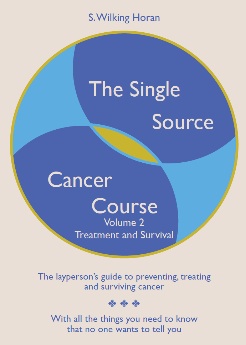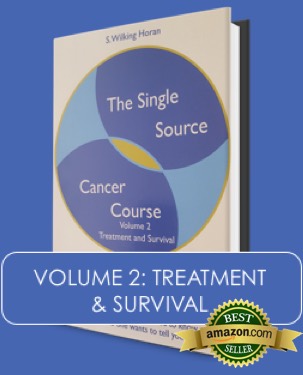 Happy #FACTUAL FRIDAY everyone! Today I want to discuss a new at-home non-invasive test for colon cancer! Now, this is particularly interesting for me considering my health history — but, it’s also very good news for those who simply dread going in for their recommended colonoscopies.
Happy #FACTUAL FRIDAY everyone! Today I want to discuss a new at-home non-invasive test for colon cancer! Now, this is particularly interesting for me considering my health history — but, it’s also very good news for those who simply dread going in for their recommended colonoscopies.
OK — maybe having a colonoscopy isn’t your idea of a fun time. But remember, it’s a necessary procedure that can — and has — saved many lives — mine included. So for those who are still unfamiliar with the procedure, please refer to The Single Source Cancer Course – Volume 2 for a full rendition of the colonoscopy — or to my post of May 10th, 2014, in which I also describe the entire process — from beginning to end — so to speak.
In spite of the test’s life-saving abilities, however, many people still procrastinate and put off having a colonoscopy — until problems or symptoms appear — and we never want to wait that long! We always want to be proactive — not reactive!!
So the folks at the FDA (many of whom are probably thrilled with this new development as well) have approved a new test called Cologuard. If you’re interested, talk to your doctor to determine if it might be good for you. If so, you will receive a prescription for the test kit, which will be mailed directly to your home. You then will mail the test results — replete with stool sample — back to the laboratory for analysis.
The good news about Cologuard is that there is no long prep with laxatives and numerous runs to the bathroom. Also, Cologuard is sensitive enough to test for both abnormal DNA and blood in the stool — both of which are warning signs of colon cancer.
The bad news is that this “do-it-yourself” test cannot remove polyps or pre-cancerous conditions in the colon — whereas these tissues can be removed during a colonoscopy. And, if the test detects abnormalities, you will have to get a traditional colonoscopy immediately anyway. Also, while Cologuard has been found to be 92 percent effective in detecting colon cancer in test patients, it really isn’t designed to be a replacement for the traditional colonoscopy. Rather, researchers believe it might be a good thing to do every three or four years in between your regularly scheduled colonoscopies — just to make sure everything is normal.
So, let’s add this to our Cancer Tool Box. Another wonderful device that may not be a substitute for the traditional colonoscopy, but a supplement that can make our lives easier and healthier!!
Thanks everyone!! Until next time,
TAKE THE COURSE AND TAKE CHARGE!



Leave a Comment